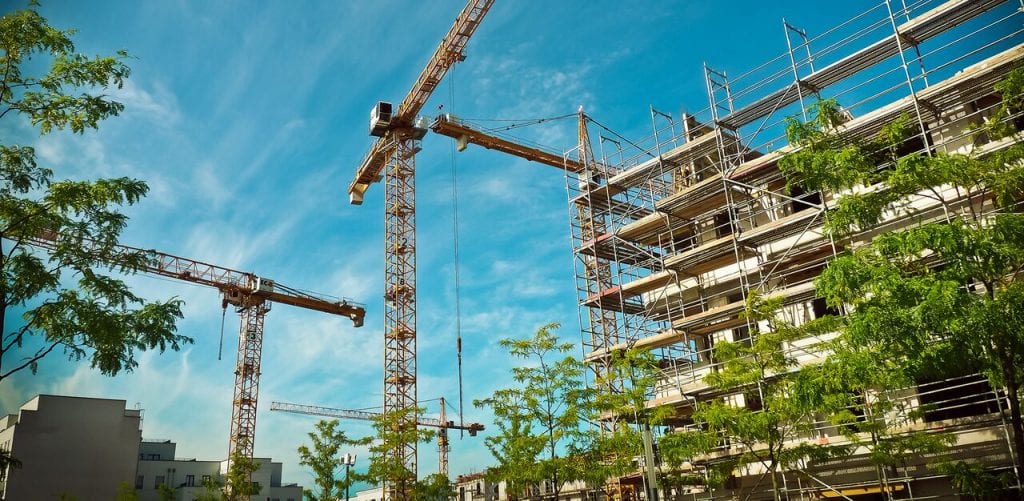
Canada’s federal budget in 2022 was released in early April. There were many provisions and measures within it to help tackle the red-hot housing market we’ve seen since the start of the pandemic.
In addition to pledging a significant amount of money to help address housing inventory shortages, the federal budget in 2022 also takes aim at some issues impacting lower-income Canadians, and the ability of first-time buyers to enter the market–something that has been increasingly difficult with low inventory levels and rising home prices.
So how will Canada’s federal budget in 2022 impact new homebuyers? Let’s take a closer look at some of the items in the budget:
Tax-Free First-Time Homebuyer Savings Account
We know about TFSAs and RRSPs, but this new type of savings account is specifically targeted at first-time homebuyers. Buyers can put up to $8,000 per year ($40,000 in total) of tax-deductible savings in this new account. Additionally, any investment growth or any money you draw from the account is also tax-free.
For homebuyers whose main concern is saving for a down payment, this account could prove to be a valuable tool to get their down payment ready without dealing with any of the tax implications or repayment rules that are required when you draw from an RRSP.
Are you looking to buy your first home in a great Hamilton neighbourhood? Check out the latest Hamilton Mountain homes for sale right here.
First-Time Homebuyer Tax Credit Doubled
Currently, first-time homebuyers can claim up to $5,000 for the first-time homebuyer’s tax credit. This new provision in the budget would allow first-time buyers to claim up to $10,000, which effectively doubles the non-refundable rebate from $750 to $1,500.
This tax credit has been useful in the past when homeowners are budgeting for things like closing costs, moving costs, and other unexpected fees and expenses that can pop up when buying a home.
Two-Year Ban on Foreign Buyers
This federal budget 2022 item was highly publicized, but its ramifications for the average homebuyer are actually quite minimal. Essentially, the government is banning foreign individuals and businesses from owning property in Canada for two years. The exception to this rule is if the person is buying recreational real estate or if they have a work permit or are an international student.
The purpose of this rule is to limit the number of properties purchased by foreign individuals in order to ensure more inventory is available for Canadians first. However, the reality is that the number of foreign buyers in the market is so minuscule that it likely won’t impact the market one way or another.
It’s common to see homes sell ‘over asking.’ But what does that really mean? Read our blog about everything you need to know about ‘sold over asking price’ right here.
Building New Homes
Canada’s federal budget in 2022 also includes measures to address the current housing shortage. The government is allocating $4 billion to build 100,000 new homes over the next 5 years. They are also allocating another $1.5 billion to build 6,000 affordable housing units in the next two years.
While many experts agree that addressing the inventory shortage should be the number one priority to ease the current housing crisis, many are skeptical that this budget and the number of projected new homes are enough to satisfy the current and future needs.
Many experts feel that all levels of government including federal, provincial, and municipal need to work together to solve this issue.
First-Time Homebuyer Incentive Extended
The government has also announced that it will be extending the first-time homebuyers incentive. First announced in the 2019 federal budget, this is a shared-equity mortgage with the federal government. The federal budget in 2022 has announced that this program will be extended until March 2025.
The program allows buyers to take out smaller mortgages with smaller payments as the government or mortgage lender provides part of the purchase in exchange for an equity stake in the property.
Although on paper, this seems like a great program, recent research from The Globe and Mail has shown that consumer uptake in this program did not meet expectations. The government also says it will be making small changes to the program to make it more appealing to consumers and to hopefully get more buyers to take advantage of the program during the extension.
You can read our full guide to the First-Time Homebuyer Incentive right here.
Cracking Down on House Flipping
The federal budget in 2022 proposes to end the principal residence tax exemption on properties bought and sold within 12 months. This specifically targets buyers who buy properties, flip them, and then sell them in quick succession to take advantage of a quickly appreciating market.
In Canada, sellers are not taxed on the profit they receive from selling their principal property. So this ban would have a big impact on career flippers or people who are looking to grow wealth through real estate flipping.
However, there are some exceptions to the rule. For instance, if you need to sell your home within 12 months of purchasing it due to life-changing circumstances such as death, the birth of a child, divorce, and more, you will not be required to pay tax on the profits.
Making an offer on a home can be stressful! Read our blog here to learn everything you need to know about successfully making an offer on a house.
A Tax Credit for Multi-Generational Homes
Secondary suites have gained popularity over the past few years and the government aims to reward homeowners who want to capitalize on this trend. Any homeowner who builds a secondary suite for an older family member or family member with a disability will be allowed to claim 15% of up to $50,000 in building expenses.
These savings could be compounded when you consider the value that a secondary suite adds to your home.
Assignment Sales Tax
Buying a pre-construction condo and selling it before taking possession is what is known as an assignment sale. The short story: the original purchaser of the condo (the assignor) essentially sells their rights to the property to someone new (the assignee).
For some Canadians, this strategy is useful since pre-construction projects are often sold months or even years in advance, and your situation may change during that time. However, the government is hoping to crack down on real estate investors who are buying up pre-construction condos in hot markets to reap the benefits of appreciation with an assignment sale.
At this time, assignment sales are not subject to sales tax if the assignor originally intended to take possession and move into the home. The federal budget in 2022 proposes that all assignment sales be subject to sales tax beginning early May in order to eliminate the chances of someone being “dishonest about their original intentions.”
The real estate market is always changing, it pays to work with experienced real estate agents in Hamilton, Ontario for your next purchase or home sale. Contact Michael St. Jean Realty today at 1-844-484-SOLD or email us here to see how we can help!


